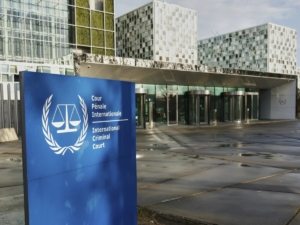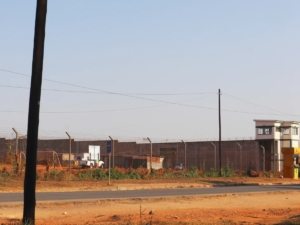When President Donald Trump hosted five African leaders in Washington this month, his comments laid bare a strained understanding of the continent. He praised Liberian President Joseph Boakai’s English, despite English being Liberia’s official language, and urged another leader to cut short his remarks.
But beyond the awkward optics, Trump unveiled a bold pivot in U.S.-Africa relations: a move from humanitarian aid to what the administration calls “commercial diplomacy.” Even as the U.S. government rolls out new trade agreements, this shift comes alongside sweeping tariff hikes and deep aid cuts, stoking economic anxiety across the continent.
At the heart of this policy is a blunt message: America wants business, not charity. “It is now truly our policy for Africa,” declared Troy Fitrell, the U.S. top diplomat for the region. Speaking in Abidjan, Ivory Coast, in May, he explained that ambassadors would now be measured by how they champion American companies and the deals they broker, not by development programs. “How well they support” local business, he added, will be a new metric.
READ ALSO: Not just a visit: Why Trump is hosting five African leaders at the White House
That shift follows the dismantling of the U.S. Agency for International Development (USAID), which alone provided over $12 billion in humanitarian aid in 2024. It’s a jarring reversal for many nations still reeling from droughts, energy crises, and COVID-era economic scarring.
Watch a recent episode of The BreakDown podcast below and subscribe to our channel PanaGenius TV for latest episodes.
Yet Trump’s administration touts early success, 33 new deals worth $6 billion within his first 100 days, and another $2.5 billion announced at a U.S.-Africa business summit in June. Projects range from digital infrastructure and grain storage in Angola to energy in Rwanda and tourism in Ethiopia.
However, many African leaders remain wary. Despite new trade pitches, several nations are already feeling the sting of Trump’s protectionist tariffs. South Africa’s Automotive Business Council reports an 80% plunge in vehicle exports to the U.S. since a 30% duty was imposed. The council warned the move “strikes at the heart of South Africa’s industrialization agenda,” threatening over 100,000 jobs across agriculture and manufacturing.
Smaller economies are also facing steep consequences. Lesotho, which was slammed with 50% duties, second only to China, declared a state of disaster before Trump temporarily paused the penalties for 90 days. “About 12,000 textile jobs in Lesotho hang in the balance,” said Mokhethi Shelile, the country’s Minister of Trade, Industry, and Business Development.
And the ripple effects stretch further. From cocoa growers in Ivory Coast to vanilla farmers in Madagascar and oil producers in Nigeria, the Trump administration‘s tariff strategy has upended markets and strained diplomatic ties.
READ ALSO: African leaders renew push for slavery and colonial reparations despite resistance
Critics argue that Trump’s “trade over aid” narrative masks a deeper agenda: access to Africa’s vast mineral wealth. “In reality, these tariffs are not about trade balances. It’s economic warfare,” said the Alternative Information and Development Centre, a South African NGO.
Indeed, African leaders have long advocated for trade-based partnerships. But Trump’s push is layered with uncertainty, especially around the African Growth and Opportunity Act (AGOA), the flagship U.S. trade program that allows duty-free access for nearly 2,000 goods from 32 African countries. The law expires in September, with no clear commitment from Washington on renewal.
South Africa’s trade minister has already warned that it will be “very difficult” to maintain AGOA under current conditions. While Fitrell claims to be a “big fan” of the deal, he also emphasized that African governments must step up lobbying efforts. Future deals, he suggested, may require “much greater attention toward some form of reciprocity” in line with Trump’s focus on prioritizing U.S. economic interests.
Meanwhile, China is capitalizing on the gap. Already Africa’s largest trading partner, the country announced in June it would grant zero-tariff access to exports from 53 African nations. But that too comes with caution. “Aligning with China … could possibly bring about more economic punishment from the U.S.,” warned Brendon Verster, an economist at Oxford Economics Africa in an AP report.
READ ALSO: Trump plans 10%+ tariffs on African, Caribbean imports; pharma and tech next










